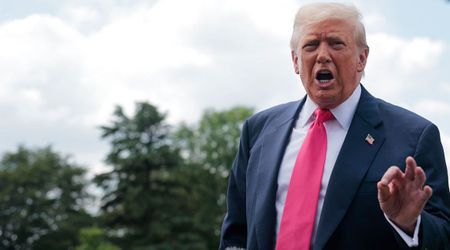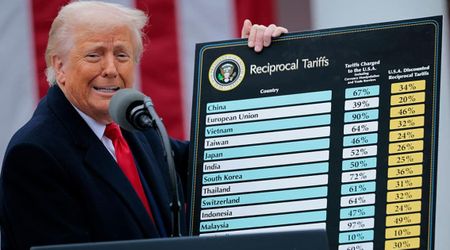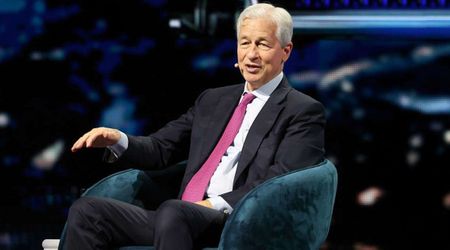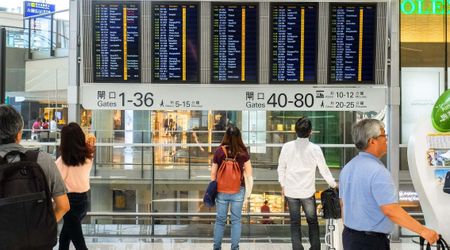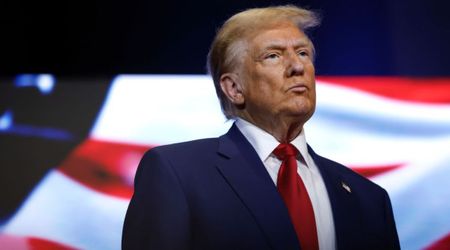Skyrocketing Auto Insurance Costs Prevent Inflation From Easing In The US

Despite inflation slightly easing in the US, an unusual culprit is preventing consumer prices from falling further in the country -- auto insurance. Surging premiums are fanning the flames of high inflation putting more pressure on US households. While consumer prices rose 0.3% in January, the cost of auto insurance jumped 1.4% in January, according to Foxbusiness. The total annual hike of auto insurance costs stood at 20.6%, the largest annual increase since the 1970s, according to a Reuters report.
Thus, when compared with early 2019, motor vehicle insurance is nearly 40% more expensive and experts say the problem could soon get worse in the coming future.
Rising home and auto insurance costs have dealt a double whammy to Florida consumers in recent years. Floridians pay some of the highest rates in the nation for property insurance, with premiums tripling over the past five years. During the same period, Florida car insurance… pic.twitter.com/1aeY50zKs6
— Florida Trend (@FloridaTrend) January 29, 2024
Impact of Auto Insurance Costs on Inflation
Premiums have risen persistently all year every month, at rates that exceed monthly increases before the pandemic. Thus, auto insurance which is an expense category rarely registered as a hefty influence in overall inflation, accounted for 15% of headline price increases in the final quarter of 2023.
However, it is unclear how much the insurance costs alone can impede further progress on inflation and impact the outlook for the Federal Reserve interest rate cuts, which are expected to happen later this year.
Why is the Cost of Auto Insurance Soaring in the US?
Several factors are adding to the rising premiums, including increasing costs for labor and parts to repair damaged vehicles. Further, declining demand from reinsurers, and "natural disaster risk is probably contributing to the margin," Tom Simons, U.S. economist at Jefferies told Reuters.
Since the COVID-19 pandemic, the price of both new and used cars has risen sharply. This is a result of both supply chain disruptions and the unseasonably high demand that was observed during and post the pandemic. Therefore, vehicles in general are more expensive to replace, which has further driven up the price of repairs, causing an uptick in insurance premiums covering these costs.
Average used car price in the U.S. is now above $29,000, up almost 30% in a year https://t.co/FaM2tZahlt pic.twitter.com/gZrB7cCzfJ
— Nat Bullard (@NatBullard) January 10, 2022
Another major factor in surging auto insurance premiums is the shortage of mechanics across the country. This is driving auto repair costs even higher. According to estimates from the TechForce Foundation, the number of graduates completing post-secondary programs in the automotive sector has plummeted by 20% since 2020, Foxbusiness reported. On top of that, the number of automotive technicians in the U.S. is projected to continue decreasing in the coming years, with no signs of relief for insurance premiums.
According to a chief financial analyst at Bankrate.com, Greg McBride, insurance companies across the country are facing an increase in medical, legal, and other operational costs as well.
Here’s A Look At The Priciest States For Auto Insurance
Since auto insurance is typically regulated on a state-by-state basis, the insurance costs are premiums are subject to major regional differences.
This was exemplified in the case of Allstate, which threatened to pull auto coverage in three states it incurred heavy losses. Thus, responding to the company’s demands, the state of New Jersey in December approved auto rate increases averaging 17%, and New York allowed a 15% hike for the insurance provider, according to the Wall Street Journal. Further, the regulators in California have also allowed the firm to boost auto rates by 30%.
Having a car is getting more expensive for drivers in some states as auto insurance premiums continue to soar. According to a new report, U.S. drivers are paying an average increase of 26% from last year. https://t.co/Xc1y1JYQ3w
— CBS News (@CBSNews) February 5, 2024
According to Insurify’s data, New York car owners face the highest insurance costs for their vehicles, a CBS report mentioned. On average, vehicle owners in the state have to pay about $3,374 per year for full coverage, which comes out to an average of $281 per month.
Next comes Nevada with an average of $2,975 per year ($240/month) followed by Florida with $2,917 $243/month), Delaware with $2,806 ($234/month), and Louisiana with an average of $2,792 ($233/month).






